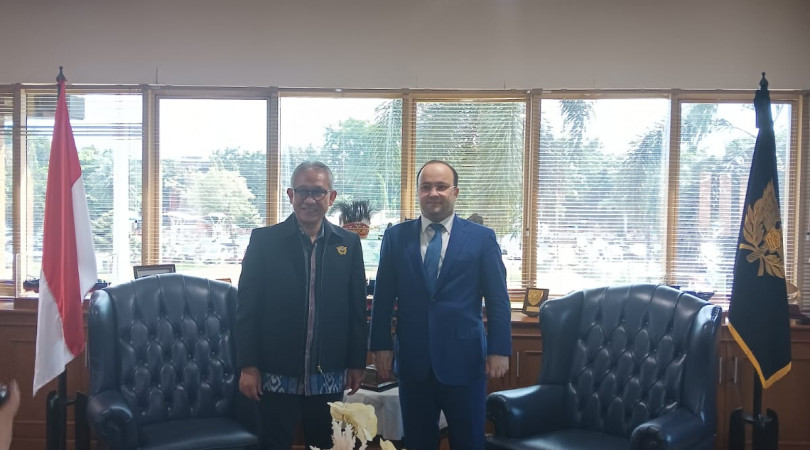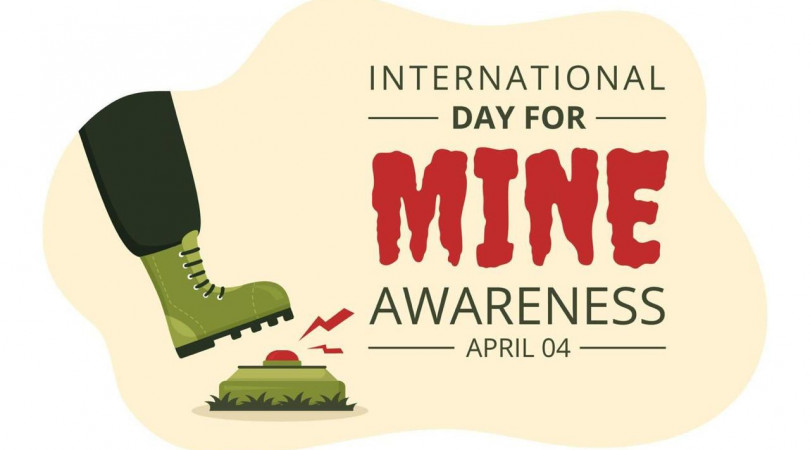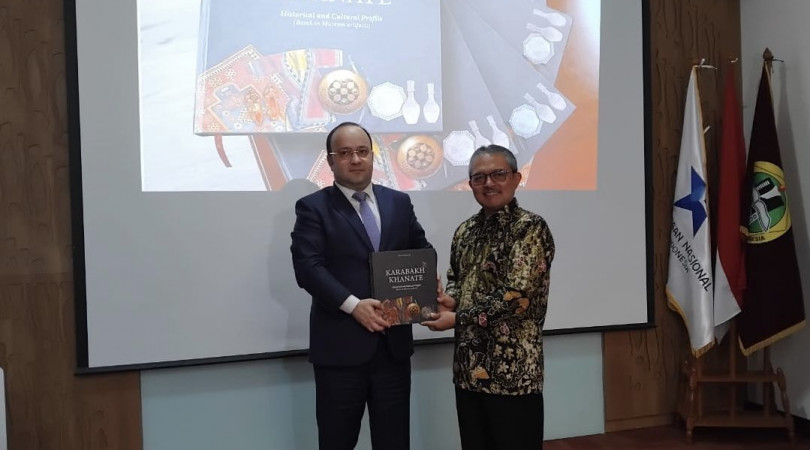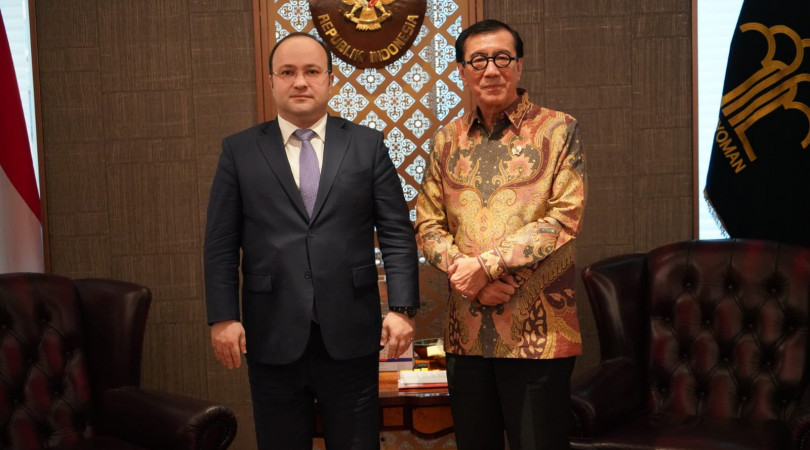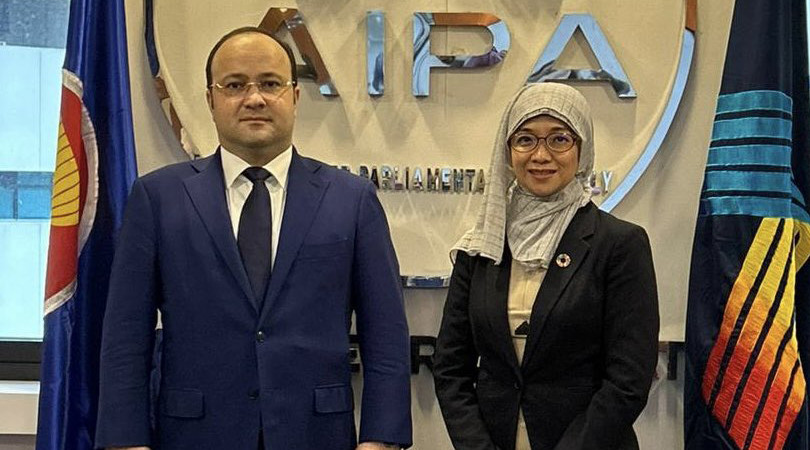Appeal of the Commissioner for Human Rights (Ombudsman) of the Republic of Azerbaijan regarding international environmental crimes committed by Armenia
Armenia has not only committed war crimes against humanity and peace while occupying Azerbaijani territory for 30 years, but it has also seriously endangered the ecological security of the area and is still doing so. The destruction of Armenia's agricultural lands, water basins, atmosphere, forest fund, flora and fauna, mineral resources, and energy sources caused the ecological balance to be disrupted not just in our nation, but also across the rest of the region. All this once again proves that Armenia commits environmental crimes and does not fulfill its obligations under international conventions on ecology and environment. However, we are disappointed that international organizations and international non-governmental organizations (INGOs) working in the field of environmental protection have remained mute on the situation that Armenia has created, which is a source of world risk.
One of the major challenges that exist ahead is preventing crimes that endanger the ecological balance, punishing perpetrators, and ensuring that each state complies with the requirements of the relevant international and national legislative acts.
Nevertheless, existing contradictions, international organizations' silence, and the prevailing impunity enable Armenia to continue its crimes that generate global and regional environmental concerns. One of Armenia's new initiatives that may create a regional environmental problem is the desire to build a large metallurgical plant worth 70 million dollars with an annual production capacity of 180,000 tons on an area of 16,500 square meters in the village of Arazdayan in the region border with Azerbaijan and Turkey. The construction of such a new plant in that area and the discharge of waste into the Araz River, the second largest river of the South Caucasus, may lead to pollute not only this river, but also Arpachay. The toxic gas released into the air as a result of the operation of the plant to be built will have a serious impact on fauna and flora. Moreover, if the metallurgical plant begins to operate, it will cause environmental and ecosystem damage in a wide area and air pollution with toxic waste. With this, Armenia again violates the norms and principles of international law, especially the provisions of the Convention on Environmental Impact Assessment in a Transboundary Context (ESPOO) of the United Nations Economic Commission for Europe. According to the provisions of this convention, which Armenia is also a member, if the large-scale economic activity planned by the participating states in their territory has a negative environmental impact on the territory of other countries, it should be agreed with the relevant institutions of that country, and a document on environmental impact assessment should be prepared.
It should also be highlighted that the Metsamor Nuclear Power Plant (NPP), which continues to operate in Armenia despite having reached the end of its operational period, poses a serious threat to the entire South Caucasus region, not just to Azerbaijan and Armenia.
As the Ombudsman of Azerbaijan, on January 27, 2021, by accepting the Statement "On the potential danger of the Metsamor NPP for the entire region", international organizations called for the immediate closure of the plant, the safe termination of its work, and the disposal of radioactive waste in order to prevent the next disaster similar to Chernobyl and Fukushima. The International Atomic Energy Agency called for immediate measures to be taken under strict international control in accordance with the requirements of the Joint Convention on the Safety of Spent Fuel Management and the Safety of Radioactive Waste Management, as well as PACE Resolution No. 1588 of 2007.
However, Armenia continued to operate the Metsamor NPP until 2026 and beyond, not even paying attention to their concerns or those of international organizations.
It should also be noted that the discharge of chemically-containing water from Armenia's large mining enterprises - the Gajaran copper-molybdenum plant and the Gafan ore processing plant, as well as from the Ley-Lichkivaz gold deposits - into the cross-border river Okchuchay for many years has a negative effect on the quality of all water resources in the region, which directly threatens people's rights to live and live in a healthy environment.
The Sarsang reservoir, which provides irrigation for agricultural areas, is one of the facts of Armenia's deliberate pollution of water sources. In addition, in resolution No. 2085 of the Parliamentary Assembly of the Council of Europe dated January 26, 2016, it was noted that the contradiction of the Sarsang reservoir in terms of technical parameters poses a threat to people's lives and health, as well as a serious disaster, and Armenia's actions lead to global environmental problems, which considered an aggressive act.
Studies show that it takes many years and plenty of cash to restore the destroyed ecosystem in the liberated lands from occupation. The current landmine problem, which has become an urgent issue for our country and has caused numerous casualties and injuries, delays the safe return of thousands of former internally displaced persons (IDP) to their homelands, and creates an obstacle to peace and large-scale construction works in our liberated territories.
Although we regularly appeal to international organizations and relevant institutions regarding the transfer of accurate maps of mined areas, including mass graves, to our country, unfortunately, the Armenian government still does not take any real steps towards the transfer of accurate mine maps, and with various excuses gives up. On the contrary, Armenia encouraged by the fact that it has not been subjected to any pressure at the international level, and continues the process of mining, which creates danger, through sabotage groups in the territories of Azerbaijan, liberated from occupation, recognized by the United Nations (UN).
The 1989 Basel Convention "On the Control of Cross-Border Transportation and Disposal of Hazardous Waste," the 1976 Convention "On the Prohibition of the Use of Any Military or Hostile Means of Impact on the Environment," and the 1992 Convention "On the Prohibition of the Use of Any Military or Hostile Means of Impact on the Environment" are the main sources of support for all of these. However, it has been demonstrated constantly that it fails to comply with its responsibilities under these and other international agreements.
As the Ombudsman of Azerbaijan, international organizations working in the field of environmental protection, international non-governmental organizations, and civil society institutions are responsible for resolving global and regional environmental problems caused by Armenian violations of the environment, fulfilling obligations arising from existing international documents in the field of environmental protection, and to prevent occurrence of such actions in the future, we invite you to take measures.
Sabina Aliyeva
The Commissioner for Human Rights
(Ombudsman) of the Republic of Azerbaijan
17 July 2023

